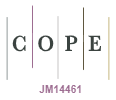Education, neoliberalism, democracy, and politics: dilemma and challenges that faces us in our contemporaneity
DOI:
https://doi.org/10.5585/eccos.n71.27604Keywords:
contemporaneity, democracy, education, neoliberalismo, politicsAbstract
This paper, implicitly animated by the thoughts of Félix Guattari, Gilles Deleuze and, above all, Michel Foucault, seeks to constitute an assemblage between education, neoliberalism, democracy, and politics in our present, pointing out and problematizing some of the dilemmas and challenges that we face in our contemporary times. Starting from a paradox that riddles both education and democracy, it critically reviews some of the ambitions, peculiarities, and excessive unmeasured pretensions of modern education, until the rupture of “May 68”, which imposes a redefinition of theoretical, philosophical, and political perspectives of action. It is then argued that the advent of neoliberalism was accompanied by a movement that, simultaneously, empties politics, making it secondary, eclipsing it and, furthermore, exchanging it for techno-business management, thus weakening not only democracy, but also the conditions of possibility of instituting an insurgent education. In this sense, the paper examines a series of factors involved in this process (the crisis of financial-speculative capitalism of 2008 and its effects, the phenomenon of social networks and algorithmic governmentality, processes of subjectivation and precariousness of “the living”, the rise of neo-fascism and “security democracies”, among others), highlighting the importance of returning politics to the first plan of educational actions and theorization.
Downloads
References
ANDERSON, Perry. (1992). O Fim da História: de Hegel a Fukuyama. Rio de Janeiro: Ed. Zahar, 1992.
ANDRADE, Otávio M. de. Governamentalidade Algorítmica: democracia em risco? São Paulo: Editora Dialética, 2022.
BELUZZO. Luiz Gonzaga. Empreendedorismo das plataformas remonta aos primórdios do capitalismo da era mercantilista. In: Holofote, Home, Economia. 22/04/2022. Disponível em: https://www.holofotenoticias.com.br/economia/empreendedorismo-das-plataformas-remonta-aos-primordios-do-capitalismo-da-era-mercantilista. Acessado em 28/04/2024.
CÉSAR, Maria Rita de A. A Invenção da Adolescência no Discurso Psicopedagógico. São Paulo: Ed. Unesp. 2008.
CHAMAYOU, Grégoire. A Sociedade Ingovernável: uma genealogia do liberalismo autoritário. São Paulo: UBU Editora, Col. Explosante, 2020.
CHÂTELET, François. Uma história da razão: entrevistas com Émile Noel. Rio de Janeiro: Jorge Zahar Editor, 1994.
CORTINA, Adela. Aporofobia, a aversão ao pobre: um desafio para a democracia. Ed. Contracorrente, 2020.
COUTINHO, Carlos Nelson. A Democracia como Valor Universal. In: SILVEIRA, Ênio. et al. Rio de Janeiro: Encontros com a Civilização Brasileira, v. 9, 1979, p. 33-47.
DARDOT, Pierre & LAVAL, Christian (2016). A Nova Razão do Mundo: ensaio sobre a sociedade neoliberal. São Paulo: Editora Boitempo, 2016.
DOSSE, François. A Saga dos Intelectuais Franceses (1944-1989): São Paulo: Editora Estação Liberdade, Vol. II - O futuro em migalhas (1968-1989), 2023.
DOWBOR, Ladislau. et al. A era do Capital Improdutivo: a nova arquitetura do poder, sob dominação financeira, sequestro da democracia e destruição do planeta. São Paulo: Ed. Autonomia Literária. 2016.
DOWBOR, Ladislau. O capitalismo se desloca: Novas arquiteturas sociais. São Paulo: Edições SESC, 2020.
DOWBOR, Ladislau. Resgatar a função social da Economia: uma questão de dignidade humana. São Paulo: Ed. Elefante, 2022.
FRANCO, Blandina & LOLLO, José Carlos (Ilustrações). Aporofobia. Você não conhece a palavra, mas conhece o sentimento. São Paulo: Ed. Cia das Letras, 2023.
GALEANO, Eduardo. Ser como Eles e outros textos. Porto Alegre: Ed. L&PM, 2023.
LANCELOTTI, Pe. Júlio. Entrevista a Carlos Tramontina – Programa “Portas Abertas”. Disponível in: https://www.youtube.com/watch?v=4al2KvgBOsA.
LIPPMANN, Walter. Opinião Pública. 2a. ed. Petrópolis (RJ): Editora Vozes, 2010.
NUNES, Rodrigo. Do Transe à Vertigem: ensaios sobre bolsonarismo e um mundo em transição. São Paulo: Ubu Editora, 2022.
PINTO, F. C. A Formação Humana no Projecto da Modernidade. Lisboa: Instituto Piaget, Col. Epistemologia e sociedade, 1996.
PRADO JR., Bento. A educação depois de 1968, ou cem anos de ilusão. In: PRADO JR. Bento et al. Descaminhos da Educação Pós-68. São Paulo Ed. Brasiliense, Col. Debate, v. 8, 1980.
RENDUELLES, César. Sociofobia: mudança política na era da utopia digital. São Paulo: Edições SESC, 2016.
SANTOS, Rone Eleandro. Governamentalidade Algorítmica e Subjetivação: sobre os riscos da construção de subjetividades em um mundo digital. In: REVES, Revista de Relações Sociais. Vol. 2, n. 1, Open Access, eISSN: 25954490, 2019. Disponível em: https://doi.org/10.18540/revesvl2iss1pp0001-0016. Acesso em: 23/05/2024.
SILVA, Tomaz Tadeu da. (Org.). Identidades terminais: as transformações na política da pedagogia e na pedagogia da política. Petrópolis: Ed. Vozes; 1996.
SILVA, Kalina Vanderlei & SILVA, Maciel Henrique. Dicionário de Conceitos Históricos. 3a. ed., 11a. reimp. São Paulo: Editora Contexto, 2022.
STIEGLER, Bernard. Da miséria Simbólica: I – a era hiperindustrial. Lisboa. Editora Orfeu Negro, 2018.
ZAJDSZNADJER, Luciano. A travessia do pós-moderno: nos tempos do vale-tudo. Rio de Janeiro: Editora GRYPHUS, 1992.
Downloads
Published
How to Cite
Issue
Section
License
Copyright (c) 2024 Sylvio Gadelha

This work is licensed under a Creative Commons Attribution-NonCommercial-ShareAlike 4.0 International License.
- Abstract 185
- pdf (Português (Brasil)) 113






